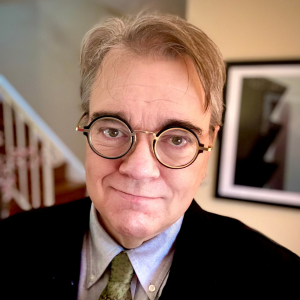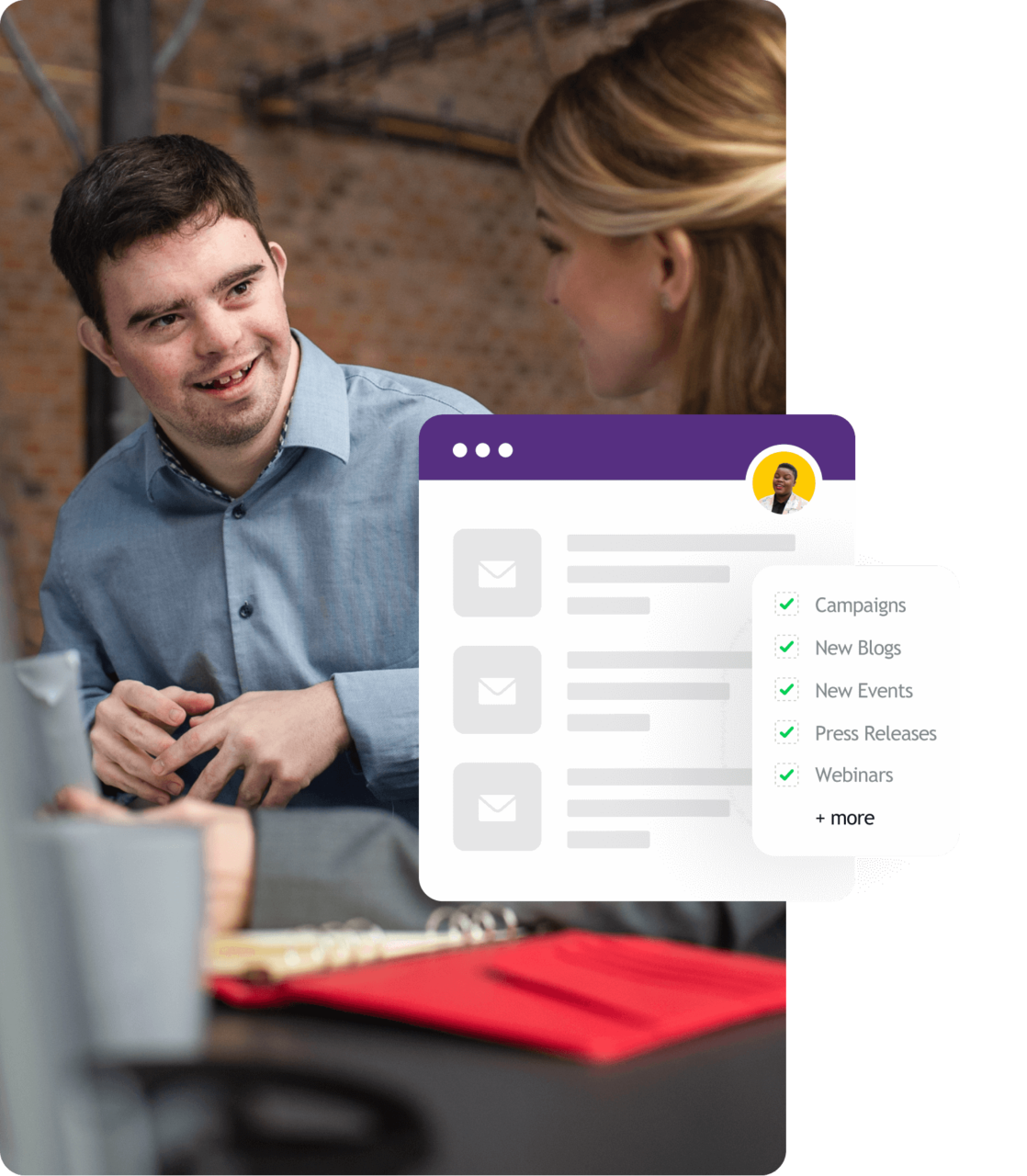
Rob Hudson is a Frank Trippett Advocacy and Outreach Fellow, and Community Outreach Associate for The Arc of Northern Virginia. Rob’s advocacy on behalf of his daughter, Schuyler, who has a rare disorder called polymicrogyria, has guided his personal philosophy for the past twenty years.
There’s Work To Do
In the month of July, the advocacy world has been celebrating Disability Pride Month. As part of that commemoration, July 26 (the anniversary of the signing of the Americans with Disabilities Act in 1990) has been declared National Disability Independence Day.
The idea of independence has always been complicated for people with. I used to write about my own daughter’s future and her desire for an independent life, but at some point I wised up a little bit and started discussing the idea of independence “with supports”. Maybe that sounds like a hedge, but honestly, how many of us live without supports of some kind? And how many of us were able to start off that way?
I wanted to get a little wider range of opinion about the state of independence in the disability world, so I reached out to my disability community friends and asked them about the state of disability rights and supports for independent living in their lives and communities. All these years after passage of the ADA, how are we doing?
Perhaps not surprisingly, I found that there’s still a lot of work to be done.
David has worked in the disability world in one capacity or another for over twenty-five years, including as the CEO and board member of a leading assistive technology company. In that capacity, he recently experienced the loss of a young man with cerebral palsy (CP). Considering this friend’s life and death has left him circumspect.
“If you look back on the days before ADA, we have clearly made huge strides toward simple awareness, inclusion and opportunities for independence,” he said. “Face forward from today, however, and the journey toward what still needs to be done looks very long.”
I know Jennifer through the online community of parent advocates. She’s always struck me as a compassionate and very clear-eyed advocate for her kid and others like him.
“As a parent of a young man with autism and as a Certified Occupational Therapy Assistant who works in Early Intervention, there is not enough support,” Jennifer said. “What do I mean by that? Lack of funding. Lack of service professionals to provide therapy. Lack of group homes. Lack of day programs or the ability to work for those that can once they age out of the school district. Lack of respite care.
“Oh, you make too much money to get help so no help for you,” she continued. “It doesn’t matter that I have other bills and other children to take care of, or that I have a six-foot-two young man with the intellectual capabilities of a 3 1/2-year-old. Every year I still have to prove he’s still profoundly autistic so he can stay on SSI and Medicaid.”
To Jennifer, the problem is simple but also systemic.
“There’s a continued perception that disabled people’s lives have less value than fully abled people,” she concluded. “The bureaucracy makes it so damn hard to get anything.”
Christine, a 41-year-old with moderate cerebral palsy, says she is physically unable to live independently because factors including aging and inconsistent access to physical therapy have led to a progressive loss of skills.
“This country has ZERO idea what to do with disabled people who aren’t either independent or completely dependent and unable to work,” she said. “I work full time as a speech pathologist. I don’t get any government aid because I make too much money and have insurance through them.”
“Everyone shows a lot of performative support and talking about how they want disabled people to be appreciated and productive and as independent as possible but it’s all smoke and mirrors because they don’t actually want to spend the effort and money that requires.”
I’ve known Stephanie for many years, and in that time I’ve seen her self-advocate with tenacity. She has congenital spastic hemiplegic CP affecting her right side; she can walk but has significant balance problems. This hasn’t kept her from a life of self-sufficiency.
“I live alone, independently from my parents,” she said. “I’ve lived with my partner since we first got together. Before that, I lived by myself in an apartment two years out of grad school.
“My personal ability to be fully independent is hindered by my not being ‘disabled enough’ to qualify for accessibility tools,” she continued. “I got all the way through school with my Master’s and became a speech language pathologist, but the severity of my physical issues prevent me from driving a car. I can’t qualify for government assistance or subsidized transportation because I make ‘too much money’, so every aspect of my life revolves around my transportation needs.
“I learned from a young age to start self-advocating. Because if I don’t, no one else can do it for me in the way that will get things done. And it’s SO exhausting. Everything is a fight. It’s a full-time job to argue with insurance companies. Even the most basic accessibility requests when I’m out in public are met with resistance.”
Stephanie considered my question before concluding.
“So, has our society made improvements pertaining to the wants and needs of the disability community? I guess it depends on which disabled people you ask, and on how old they are and what their specific needs are.
“All I know is that we have SO far to go.”
For myself, as both a parent advocate and a professional, I think it’s important to recognize the work that’s still ahead of us, and I appreciate hearing from others in the disability community as they give their honest assessment of where we are. The obstacles do loom large, and for many of us, they feel like they’ve been there forever. It can be hard to imagine them being moved or even diminished.
More than ever, I believe in the ideal of inclusion and of the possibilities. Independence, with whatever support that requires. Autonomy. Placing the voices of those with disabilities at the center of our conversations. Building a society that isn’t just accessible or inclusive, but which thrives in part on the participation and the unique contributions of every citizen, regardless of their disability.
I believe in that work. It’s why I show up to work every day, and why I hope you’ll continue to show up with me, with all of us, at our events and workshops and fundraisers and candidate forums. We’ve come a long way since the passage of the ADA over thirty years ago, and while there’s a lot of work still to do, I feel confident that together we’ll get there.



